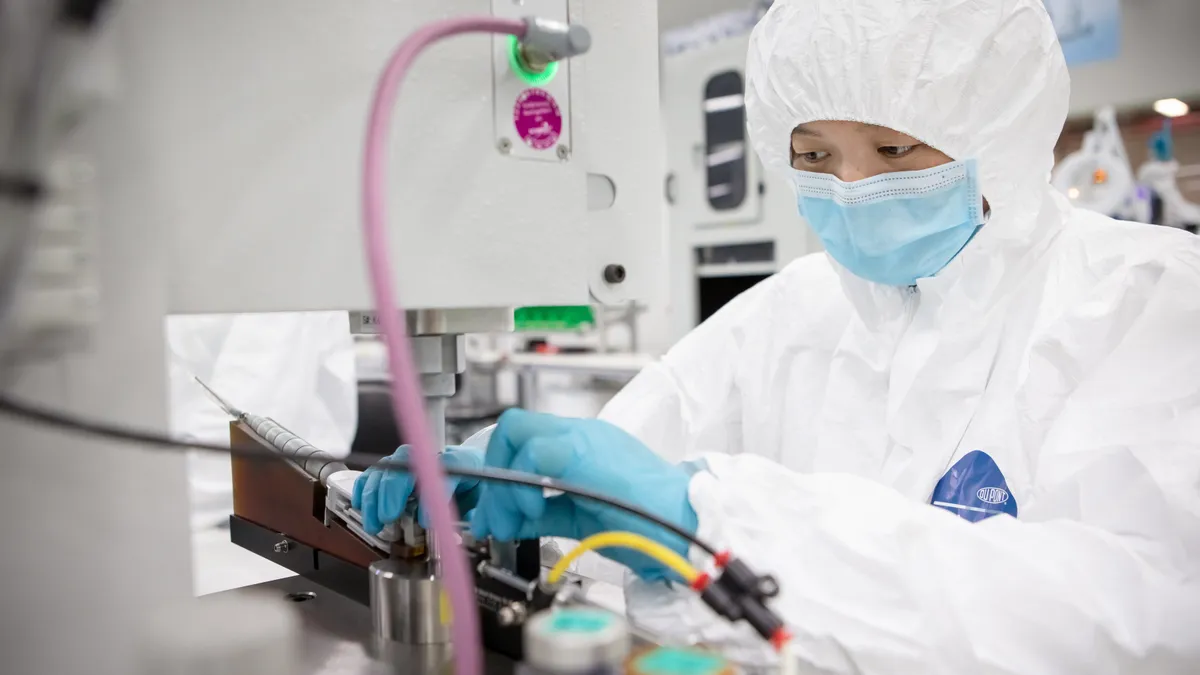Dive Brief:
- The Food and Drug Administration has added heart support technologies to its list of device shortages after learning of supply problems at Getinge.
- Late last month, the medical technology company told customers that raw material shortages were limiting production of its intra-aortic balloon pumps, catheters and spare parts. The company is currently unable to say when supply will meet demand.
- To mitigate the disruption, Getinge has extended the maintenance cycles for its pumps and batteries and is asking hospitals with underutilized devices to share them with other sites.
Dive Insight:
The shortage affects Getinge’s Maquet/Datascope intra-aortic balloon pump devices, including supplies of IAB catheters, new Cardiosave IABPs and Cardiosave IABP parts. Intra-aortic balloon pumps (IABP) use a catheter with a long balloon that is inserted into the aorta. The balloon inflates and deflates to provide temporary support to the heart’s left ventricle.
Late last year, the devices were the focus of two Class I recalls that led the Swedish company to correct its products.
Now, the devices are in short supply. Getinge attributed the disruption to “raw material shortages.” The FDA device shortage list cites “demand increase for the device” and “shortage or discontinuance of a component, part or accessory of the device” as the reasons for the interruption to supply.
Getinge is still making the devices, plus spare parts, but it said its output is below the volume “needed to quickly fulfill open orders.” The production team is “improving output in addition to improving our processes to avoid future disruptions,” according to Getinge, but “persistently high volatility in our global supply chain” makes it impossible to give a date for the resumption of normal production.
The disruption has triggered changes to the maintenance of the Cardiosave Hybrid and Rescue IABPs and lithium-ion batteries. Getinge is temporarily extending the maintenance schedule for its pump from 6 million cycles to 9 million cycles. Similarly, hospitals can, in certain circumstances, defer battery replacement beyond 200 full discharge cycles or four years of operation.
Getinge’s Datascope division, based in Wayne, New Jersey, was recently added to a long-running consent decree with the U.S. government over lax manufacturing and quality control procedures. Getinge has faced a series of problems with the balloon pump and related devices, as the FDA noted in a communication last year.















